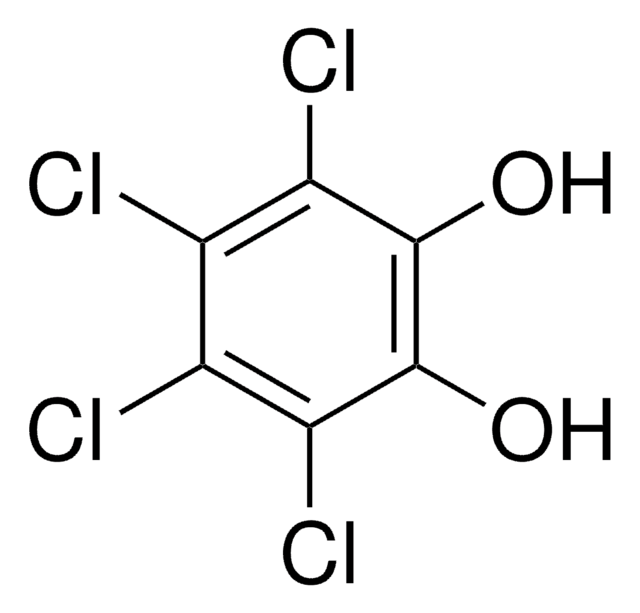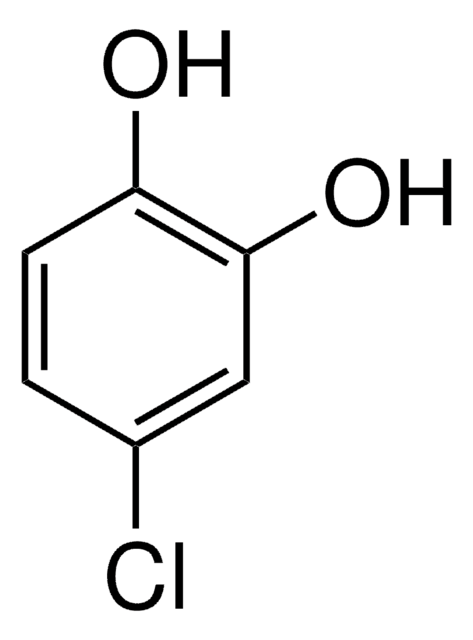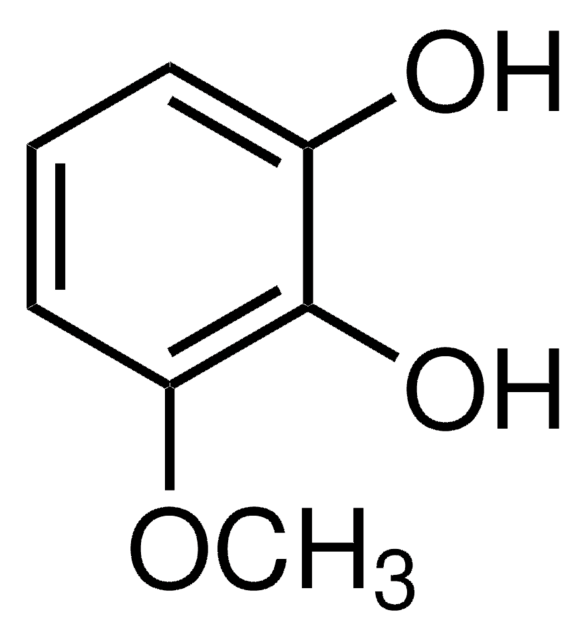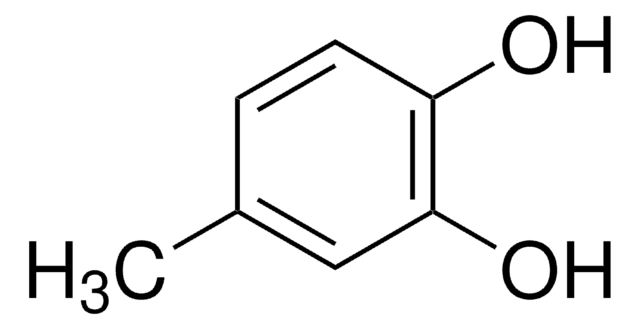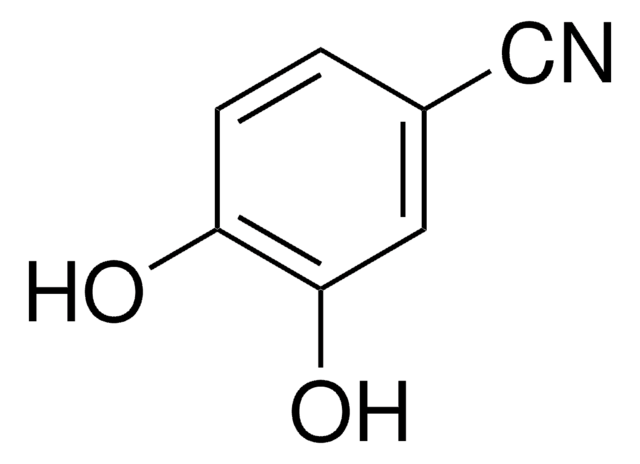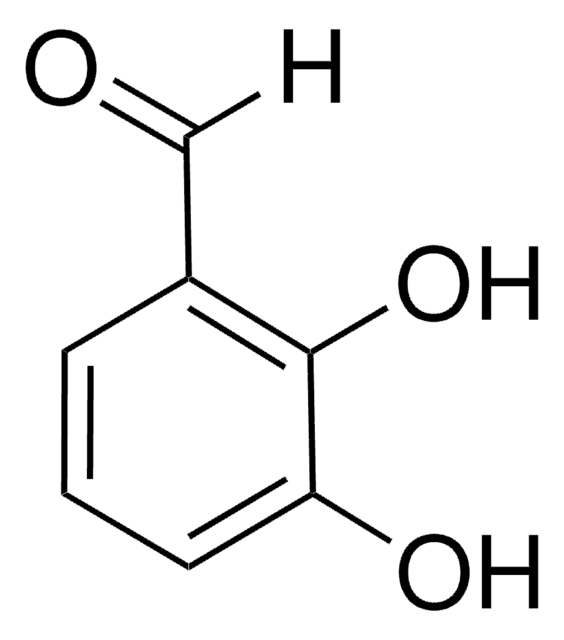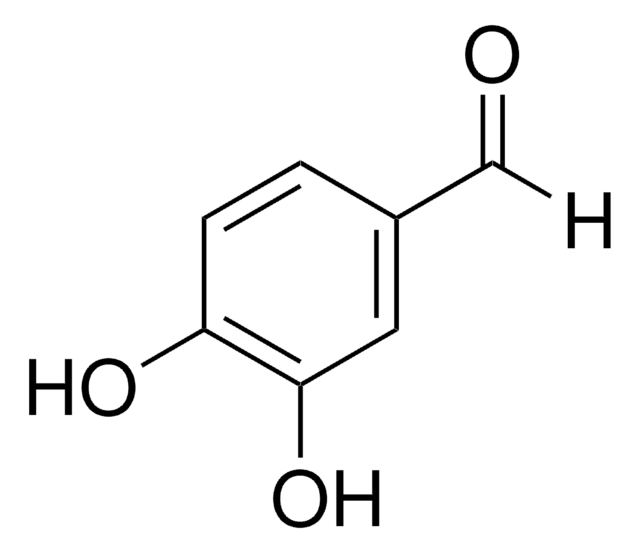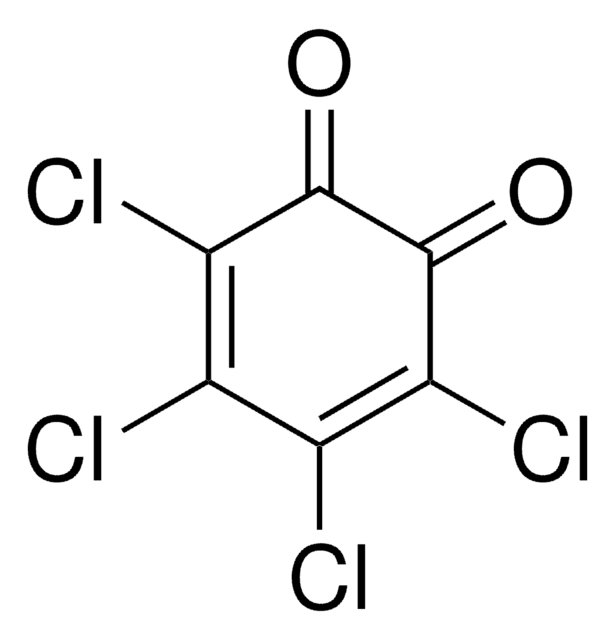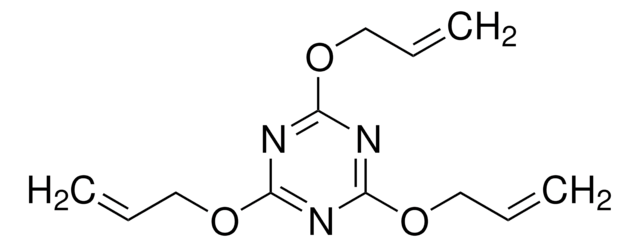All Photos(1)
About This Item
Linear Formula:
Cl2C6H2(OH)2
CAS Number:
Molecular Weight:
179.00
EC Number:
MDL number:
UNSPSC Code:
12352100
PubChem Substance ID:
NACRES:
NA.22
Recommended Products
Quality Level
Assay
97%
form
solid
mp
110-115 °C (lit.)
SMILES string
Oc1cc(Cl)c(Cl)cc1O
InChI
1S/C6H4Cl2O2/c7-3-1-5(9)6(10)2-4(3)8/h1-2,9-10H
InChI key
ACCHWUWBKYGKNM-UHFFFAOYSA-N
Related Categories
Signal Word
Warning
Hazard Statements
Precautionary Statements
Hazard Classifications
Aquatic Acute 1 - Aquatic Chronic 1
Storage Class Code
11 - Combustible Solids
WGK
WGK 3
Flash Point(F)
Not applicable
Flash Point(C)
Not applicable
Personal Protective Equipment
dust mask type N95 (US), Eyeshields, Gloves
Choose from one of the most recent versions:
Already Own This Product?
Find documentation for the products that you have recently purchased in the Document Library.
Customers Also Viewed
Mallory L Palatucci et al.
Journal of hazardous materials, 378, 120717-120717 (2019-06-17)
Dichloronitrobenzenes (DCNB) are intermediates in the production of dichloroanilines, which are key feedstocks for synthesis of diuron and other herbicides. Although DCNB is a major contaminant at certain chemical manufacturing sites, aerobic DCNB biodegradation is poorly understood and such sites
Chiara Micalella et al.
Biotechnology and applied biochemistry, 61(3), 297-303 (2014-02-28)
Enzymes entrapped in wet, nanoporous silica gel have great potential as bioreactors for bioremediation because of their improved thermal, chemical, and mechanical stability with respect to enzymes in solution. The B isozyme of catechol 1,2 dioxygenase from Acinetobacter radioresistens and
Luis E Sojo et al.
Rapid communications in mass spectrometry : RCM, 28(20), 2181-2190 (2014-09-03)
Catechols are an important class of analytes occurring in many natural and synthetic products. Electrospray ionization in negative mode is the preferred way of ion generation for these compounds; however, studies in positive ion mode can reveal their potential for
Our team of scientists has experience in all areas of research including Life Science, Material Science, Chemical Synthesis, Chromatography, Analytical and many others.
Contact Technical Service